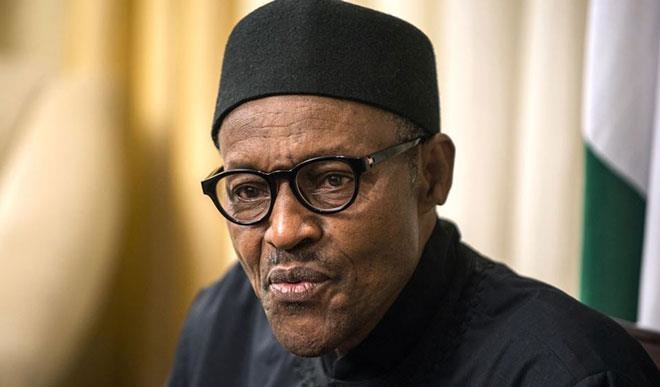
Nigeria of the first two decades after its independence from British colonial authorities was, in spite of the country’s under-development then, a good place to stay. With the greater part of the population predominantly living a rural life, the agrarian Nigerian society of the 1970s was a safe country to live in. Most of the socio-economic challenges confronting us today at national, regional, and local levels were undoubtedly beyond the prediction powers of any living soothsayer at that time.
Good governance, exemplary leadership, a vibrant agricultural sector, access to quality education, job opportunities, patriotism, national cohesion and peace are some fond memories of the good old days in Nigeria. This set of prosperities couldn’t have happened or thrived without proper planning and implementation of government policies and programmes.
With the discovery of oil, Nigeria rose to become one of the prosperous and fast developing countries of the world up to the early 1980s. However, the orchestration, by bad leadership, of colossal mismanagement of resources (material as well as human) that was steered by gross indiscipline and sustained by deep-seated corruption all combined to change the fortunes of this once-prosperous nation, Nigeria. Today, the story of Nigeria is regrettably an unfortunate one, particularly under the 16 years’ rule of the PDP-led government. Endemic poverty, unemployment, insecurity, collapsed power sector, ruined railways, failed health and education systems occasioned by bad governance altogether turned the country in the past 30 years into a consumer nation that imports nearly everything.
For the three decades that we have lived as a nation with myriad of challenges, the end to them does not seem to be in sight. Poor planning (or lack of it at some point) and haphazard implementation of strategic plans are of equal effect as mismanagement and corruption in Nigeria’s chequered history of development. Any desire for development that ignores the relevance of planning is an aspiration doomed to crash. ‘Failing to plan,’ they say, ‘is planning to fail.’
A National Development Plan (NDP) identifies, in order of priority, a nation’s critical needs. It also outlines what needs to be done within what period and by whom with a view to achieving common national objectives. With a well-thought-out NDP that is supported by strict adherence to implementation guidelines, Nigeria stands better chances to overcome its multifarious developmental challenges in a comparatively shorter period of time.
With a political will committed to executing an all-inclusive NDP, Nigeria has the potential to adequately moblise its resources to make a fundamental break with the failures of the past and lay a solid foundation for achieving sustainable poverty reduction, employment generation, food security, wealth creation, economic stability, and value re-orientation.
The need for a NDP finds justification in the reality that the one year period of the annual national budget is practically inadequate to reflect government policies and reform agenda as critical areas such as infrastructure most often require more than a year to establish, expand, reform or revive.
It equally requires longer time to bring budget deficit to an acceptable level of stability. The growing significance and relevance of prudent fiscal management for the success of every strategic development plan must be appreciated by planners and managers of a country’s economy.
The failure of some past NDPs was due to several factors, including poor implementation, budgetary indiscipline, corruption and lack of continuity. A catalogue of past development plans include the First NDP (1962-1968); Second NDP (1970-1974); Third NDP (1975-1980); and the Fourth NDP (1981-1985). It was, for instance, through these NDPs that Nigeria built some of its infrastructures, including the Jebba paper mill, the bridge across River Niger, and all its oil refineries.
Five years after the Fourth NDP ceased to exist, former military president Ibrahim Babangida re-introduced the NDP with a modified time frame from the traditional five years to three; and named it the National Rolling Plan (NRP).
The NRPs were amenable to periodic reviews as they were also flexible enough to effect corrections with a view to achieving sustained growth and development. The First NRP (1990 -1992) which aimed at consolidating the gains of the Structural Adjustment Programme (SAP) unfortunately failed to achieve its purpose.
In 1996, former and late head of state, late General Sani Abacha, also initiated his own fashion of a development plan which he called Vision 2010; a document generally considered as one of the best development blueprints produced in the country. Vision 2010 sufficiently captured all segments of development issues of the Nigerian society. The beauty and worth of Vision 2010 similarly died along with its proponent on June 8, 1998.
Responding to development challenges in the country almost half a decade after the ‘demise’ of Vision 2010, ex-president Olusegun Obasanjo in 2003 launched a new economic reform agenda under the name National Economic Empowerment and Development Strategy (NEEDS) as his own model of a NDP. The scheme was designed to specifically address International Development Targets (IDTs), which were set in line with the United Nations Millennium Development Goals (MDGs) that aimed at improving the economic well-being of nations. NEEDS thrusts, therefore, centred on poverty concerns that relate to hunger, water, disease, AIDS, and orphans. Sadly, NEEDS too left the stage along with Obasanjo on May 29, 2007.
When former and late president Umaru Musa Yar’Adua assumed office in 2007, he piloted the production of an economic transformation blueprint called Vision 2020. This is the last on the list of Nigeria’s past development initiatives. Unlike his predecessors, former president Goodluck Jonathan was too preoccupied with under-development issues to have time for defining any development agenda, whether short, mid or long term.
NDP is a necessary development tool with which government can set its visions and missions for achieving defined development targets. Nigeria has all it takes to become the strongest economy in Africa; and in the longer term one of the leading economies in the world. May Allah (SWT) guide the administration of President Muhammadu Buhair to give national development plan a favourable thought and place, amin.




